SHM editorial board members share their picks
Each year, hospitalists, clinicians, and frontline workers come together for SHM’s annual conference—Converge. They come for education, engagement, and networking. It’s been two years since the last in-person event, but this April in Nashville, Tenn. you’ll find all that, and more—in person.
As a sneak peek, The Hospitalist’s editorial board members share the sessions at the top of their must-attend lists.
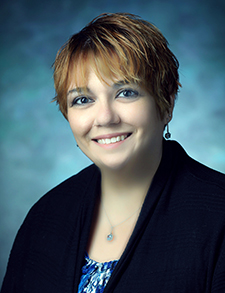
Ms. Panek
Tiffani Panek, MA, CLHM, SFHM, division administrator, division of hospital medicine, Johns Hopkins Bayview Medical Center, Baltimore
The first session I’m really looking forward to is “Finding Calm in the Storm: Building Resilience & Strengthening Emotional Intelligence”. It’s been a tough few years for everyone, and now more than ever, learning how to be more resilient in the face of the world around us is so important.
I’m also looking forward to the session on the leadership track, “Immigrant Hospitalists: Our Stories and Paths to Success”. Any time you get to hear personal stories from your fellow hospitalists it’s so impactful and learning how people have grown and thrived should be very inspirational.
Then, especially considering some of the challenges the world and medicine are facing right now in terms of social justice, I am looking forward to “Rise Up: Challenging Microaggressions and Implicit Biases in Organizational Culture”. It’s vital that we understand the role our own systems play in these difficulties and better know how to combat those elements of our cultures.
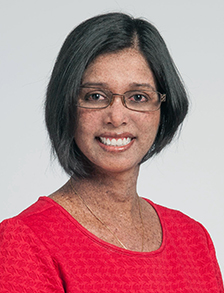
Dr. Kumar
Anika Kumar, MD, FAAP, FHM, staff physician, department of pediatric hospital medicine, assistant professor of pediatrics, Cleveland Clinic Lerner College of Medicine of Case Western Reserve University, Cleveland, and pediatric editor of The Hospitalist
Converge 2022 is filled with great content, especially on the pediatric track. As a pediatric hospitalist, I’m most excited to attend the “Transitions from Pediatric to Adult Care for Patients with Medical Complexity”, and the “Mental Health Boarding on Inpatient Units” sessions. Both are hot topics and address different populations that often require unique care.
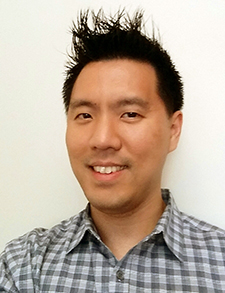
Dr. Kim
James Soo Kim, MD, assistant professor of medicine, Emory University School of Medicine, and Emory University Hospital, Atlanta
“So You Want to be a Medical Director: Tips and Tricks for Securing and Thriving in Your Leadership Role” Speakers: Stephanie Halvorson, Dan Hunt, Chad Vokoun, and Rand Ladkany. I think the members of the panel have a great amount of experience concerning the topic, and this session will hopefully be useful for audience members, no matter whether they’re just starting their careers or have been in their positions for a while.
“Chart SMART: Using Documentation Wisely” Speakers: Nita Kulkarni, Matt Landler, Aziz Ansari, and Gopi Astik. I remember listening to Dr. Ansari several years ago and his lecture about documentation. I was surprised by how much I learned and how engaging it was. Even though the subject matter may seem a little dry, I think the panel will be able to elevate the topic.
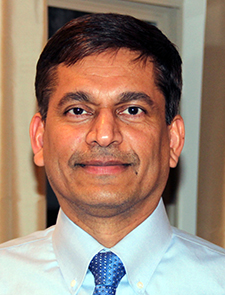
Dr. Kumar
P Dileep Kumar, MD, MBA, FACP, FAAPL, CPE, hospitalist, East Michigan Hospitalists, Port Huron, Mich.
I’m looking forward to several sessions in particular: “Perioperative Pitfalls—Overcoming Common Challenges in the Medical Care of Surgical Patients”; “Delirium Do Si Do: Literature and Best Practices”; and “How to Fund Your Research: Understanding and Navigating Funding Opportunities for Any Size Research Project”.
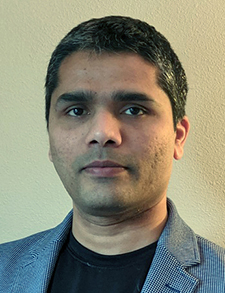
Dr. Palabindala
Venkataraman Palabindala, MD, FHM, hospitalist, University of Mississippi Medical Center, Jackson, Miss.
It’s hard to pick which ones are the best to attend. I’m going to listen to almost all the talks during the coming months since I’ll buy Converge On Demand. The annual meeting is one of the best collections of speakers you can ever have in the hospitalist world. This kind of summary and suggestions are not available anywhere else or at any other meeting.
Saying that, I still believe there are a few talks that are a must to attend. Of course, I will always promote my fun event, “Medical Jeopardy”. This year it’s going to be a challenge between four great attendings from four great organizations across the country vying to win the National Jeopardy competition. Not only will you learn a lot, but you’ll also have a lot of fun. I’m sure it’s going to be more entertaining this time given a combination of in-person and virtual play.
I also recommend the session by Dr. Ansari, “Chart Smart, Using Documentation Wisely”. This one is going to be a very important talk for early-career hospitalists and physician advisors who are planning to become experts in utilization-management roles.
Since I’m a tech-savvy hospitalist, the whole TECHno track will be my favorite to attend, with the “BC and AC of Telehealth: Essential Telehealth Skills for the Hospitalist in the After COVID Era” workshop high on my list.
The workshop “So You Want to be a Medical Director: Tips and Tricks for Securing and Thriving in Your Leadership Role” is also going to be one heck of a talk.
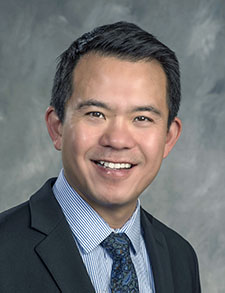
Dr. Chang
Weijen W. Chang, MD, FAAP, SFHM, pediatric and adult hospitalist at Baystate Medical Center and Baystate Children’s Hospital in Springfield, Mass., associate professor of pediatrics at the University of Massachusetts Medical School Baystate, chief of pediatric hospital medicine, vice-chair for clinical affairs at Baystate Children’s Hospital, and physician editor of The Hospitalist
“So You Think You Can Scan: Integrating POCUS with Clinical Reasoning”—POCUS and engaging clinical reasoning are two of the really fun aspects of being a hospitalist, and you get both here!
“Getting Things Done: Principles for Successful and Effective Leadership”—Whether you’re a newly-minted hospitalist or CEO of the hospital, you will be leading a team of individuals, and you can never get enough insights into effective leadership as a hospitalist.
“Approaches to Addressing Microaggressions and Mistreatment from Patients as a Provider and as a Supervisor to Learners”—The past few years have been eye-opening to the world but specifically to health care providers about how we often overlook microaggressions and outright mistreatment. I am very curious to get as many perspectives on this topic as possible since as an “older” hospitalist, I’m sure I have many ingrained biases that need to be addressed.
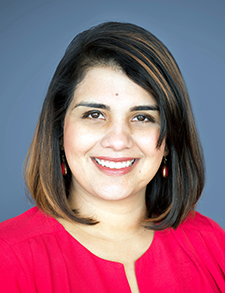
Dr. Sood
Lonika Sood, MD, MHPE, FACP, FHM, clinical education director for internal medicine, Elson S. Floyd College of Medicine, Washington State University, Spokane, Wash.
“Things We Do for No Reason”—This session will help hospitalists to continue being good stewards of appropriate and high-value care.
“The Need For Speed: Rapid Qualitative Methods for Real-World Operational and Quality Improvement And Yes!, Qualitative Research Can Be Rapid!”—Qualitative research gets a bad rap for being time-consuming. This session claims this is not the case. I would love to hear more!
“Cases from the Northwoods: Impact of Technology on Rural Medicine”—In resource-limited settings and in a pandemic, how can we leverage the use of technology? This is a timely topic!
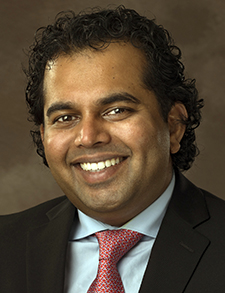
Dr. Skandhan
Amith Skandhan, MD, FHM, medical director/physician liaison, physician advisor, core faculty, internal medicine residency program, internal medicine hospitalist, Southeast Alabama Medical Center, Dothan, Ala.
“Leveraging Diversity & Inclusion to Improve Outcomes”—Diversity, Equity, and Inclusion (DEI) has taken more prominence in our society and in workplace hiring. DEI programs help the employees have the freedom to participate in the workforce and contribute as their true selves. These DEI programs facilitate a platform of creativity, sharing new ideas, and improving production, all of which should contribute to increased revenue and better quality. However, there are still health systems that don’t understand DEI.
I am looking forward to this talk to hear specifically about the outcomes and education provided to create meaningful change.
“BC and AC of Telehealth: Essential Telehealth Skills for the Hospitalist in the “After COVID Era”—The COVID-19 pandemic has highlighted health care discrepancies related to access to care. Telemedicine has been around in some form since the 1950s. The potential of telemedicine is realized during this pandemic. There is a significant opportunity to change the practice of medicine using this technology, even in the inpatient setting. We must understand the challenges and skills necessary to deal with this newer health care delivery model. The more we participate on this unique platform the more we can promote and influence a higher quality of care.
I am looking forward to learning the basic skills necessary to participate in a new culture in medicine.
“Redesigning Systems to Improve Teamwork and Quality for Hospitalized Patients: Lessons Learned”—Hospitalists often deal with issues related to system issues, whether it be readmission because of a transition to outpatient care which fell through, patient-safety issues due to diversion and emergency-department hold, or delay in care due to patient-flow challenges. Often departments work in silos. Improving care in their area of influence can create a more significant blockage in the downstream patient flow and affect the quality of care. It is essential for health care leaders to have an eagle-eye view of the entire health care system and how their department affects others. Health care system redesign makes systematic changes to improve the quality and efficiency of care rendered, leading to better patient outcomes and improved patient and provider satisfaction.
I am eager to learn what examples other institutions have incorporated to improve the teamwork and quality of hospitalized patients.
Converge on Demand
Whether you attend SHM Converge in Nashville or not, Converge On Demand is the perfect option to soak up all the education and information at your own pace. SHM Converge offers educational and networking opportunities designed specifically for the hospital medicine professional. Attendees can re-energize and focus their practice on the latest research, best practices, and newest innovations in the field that can immediately be applied to improving patient care.
Learning Objectives
- Describe current state-of-the-art, evidence-based, clinical practice for key topics in adult and pediatric hospital medicine
- Implement systemic changes to promote quality and improve patient safety
- Address current challenges in academic and educational systems for improving hospital medicine
- Discuss new policy, financial, ethical, legal, and management trends affecting inpatient care
SHM is accredited by the Accreditation Council for Continuing Medical Education (ACCME) to provide continuing medical education (CME) for physicians. SHM designates this live activity for a maximum of 102.5 AMA PRA Category 1 Credits. Physicians should only claim credit commensurate with the extent of their participation in the activity.
Successful completion of this CME activity, which includes participation in the evaluation component, enables the participant to earn up to 31.5 Maintenance of Certification (MOC) points in the American Board of Internal Medicine’s (ABIM) MOC program. Participants will earn MOC points equivalent to the number of CME credits claimed for the activity. It is the CME activity provider’s responsibility to submit participant completion information to ACCME for the purpose of granting ABIM MOC credit.
Earn more than 100 CME credits and up to 31.5 MOC points. When you purchase SHM Converge On Demand, you’ll have access until 2024. Learn more about SHM’s annual conference and Converge on Demand.